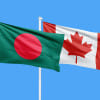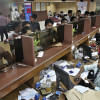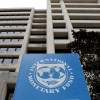Bancassurance: a win-win solution for Bangladesh

With a gross domestic product growth rate of nearly 5.8 percent in 2023, Bangladesh is one of the fastest-growing economies in the world.
Driving Bangladesh's prospects is our extremely active domestic consumer market, which accounts for nearly 70 percent of GDP and is rapidly expanding on the back of a growing middle and affluent class. Fuelling this growth is a digital economy that is also expanding rapidly.
As the nation continues to grow, there is an urgent need to lift participation – to extend services and offerings that make life better for people across the nation. One of the best ways to do this is to promote Bancassurance, which is the practice of selling insurance products through formal banking channels.
Bancassurance is poised to be a win-win for both our economy and our communities, as it can increase the accessibility and affordability of insurance offerings while fostering a culture that prioritises savings, investing, and overall financial well-being.
The development of a sector in an economy is typically measured by its contribution to the GDP. The penetration ratio is the ratio of premiums to GDP and is used to evaluate the contribution made by the insurance sector to our nation's GDP.
In 2021, the worldwide penetration ratio was 7 percent. In Bangladesh, the same ratio was merely 0.46 percent. This is far below the regional and global averages and indicates a huge gap in both the demand and supply of insurance services.
Bancassurance can help bridge this gap in insurance coverage by leveraging the existing network and customer base of banks. There are more than 100 million accounts nationwide and they cover 60 percent of the population.
By offering insurance products through banks, the cost of distribution and administration can be reduced, and customer convenience and distribution efficiency can be bolstered. Bancassurance can make insurance more accessible and affordable for millions of people who have bank accounts but lack adequate insurance coverage.
A recent study by the World Bank found that more than 40 percent of households in Bangladesh experienced a shock in the past year, and that these shocks reduced their consumption by 7.5 percent on average.
The study also found that only 8 percent of the households had any form of insurance and that most of them relied on informal coping mechanisms, such as borrowing, selling assets, or reducing food intake.
By providing financial protection and security to people, insurance can help them cope with shocks, maintain their living standards, and avoid falling into poverty traps.
Insurance can also enable people to invest in their human capital, such as education and health, and their physical capital, such as housing and business – without fear of loss. This can enhance productivity, income, and well-being in the long run – not just for individuals and their families, but for future generations to come.
Bancassurance can also have a positive impact on socio-economic development as it can foster a culture of savings and investing among the burgeoning middle class, the main drivers of growth and consumption. It is a promising and innovative solution for Bangladesh as it can create value for both the financial sector and communities.
Bancassurance also faces some challenges and opportunities – such as regulatory reforms, product innovation, digital transformation, and customer education – that need to be addressed and appropriately utilised to realise its full potential. By doing so, it can play a significant role in advancing the financial inclusion, social protection, and economic development of Bangladesh.
The author is head of consumer, private and business banking at Standard Chartered Bangladesh.

 For all latest news, follow The Daily Star's Google News channel.
For all latest news, follow The Daily Star's Google News channel. 








Comments